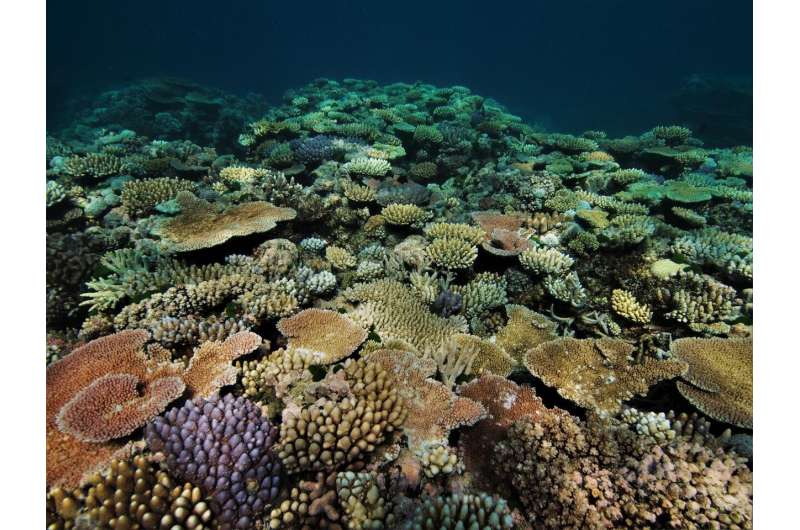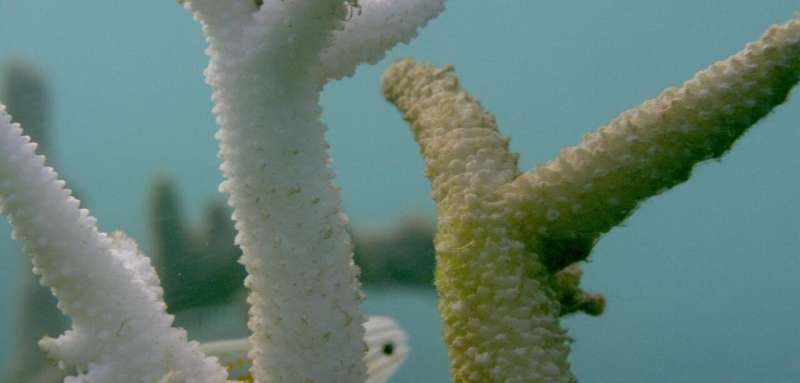Rapid coral death and decay, not just bleaching, as marine heatwaves intensify

When ocean temperatures rise, corals are put at risk of a phenomenon known as bleaching, in which corals expel the algae living in their tissues and turn white. Bleached corals are at increased risk of disease and death. But, researchers reporting in the journal Current Biology on August 8 now show that more severe marine heatwaves—as occurred on Australia's Great Barrier Reef (GBR) in 2016—are even worse for corals. They don't just lead to bleaching but to the immediate death and decay of coral reefs.
"The water temperatures are so warm that the coral doesn't bleach, it dies," says Tracy Ainsworth of The University of New South Wales, Sydney, Australia. "We still see the coral become white as the animal dies and its skeleton is exposed to the water, and then we see it very rapidly become overgrown by colonizing algae from both the inside out and the outside in. This process of rapid colonization and decay is devastating not just for the animal tissue, but also for the skeleton that is left behind, which is the three-dimensional framework of the reef."
Ainsworth's team earlier showed that just a 0.5C increase in water temperature changes the extent of mortality in corals during bleaching. In the new study, they examined GBR corals following the 2016 mass bleaching event. At that time, reefs of the northern GBR were exposed to a rapid and severe rise in sea surface temperatures, with more than 30 percent experiencing temperatures above the established threshold for coral survival. After the heatwave, the corals showed rapid degradation and mortality as microbial biofilms took over.

To better understand this phenomenon in the new study, Ainsworth and colleagues simulated the severe heatwave conditions seen on the GBR in 2016 with two coral species that showed high mortality that year. Their studies show that marine heatwave events on coral reefs are entirely different from the way coral bleaching has been understood.
Heatwave conditions lead to an immediate heat-induced mortality of the coral colony, as the coral skeleton rapidly dissolves and its structure is lost. Within days, a complex microbial biofilm encases the exposed coral skeleton, further accelerating the loss of calcium carbonate from the reef to weaken it even further.
The findings suggest that severe heatwave- induced mortality events should be considered as a distinct biological phenomenon from coral bleaching, the researchers say. They say that such heatwave mortality events, and the rapid reef decay that results, likely will become more frequent as the intensity of marine heatwaves increases in the coming years.
"This work provides very clear evidence that the intense heatwave conditions, which are now becoming a feature of bleaching events, are far more severe and are changing how we understand the impact of climate change on coral reefs and the consequences of severe heat-wave events," said says William Leggat, first author of the study from the University of Newcastle, Australia.
More information: William P. Leggat et al, Rapid Coral Decay Is Associated with Marine Heatwave Mortality Events on Reefs, Current Biology (2019). DOI: 10.1016/j.cub.2019.06.077
Journal information: Current Biology
Provided by Cell Press




















